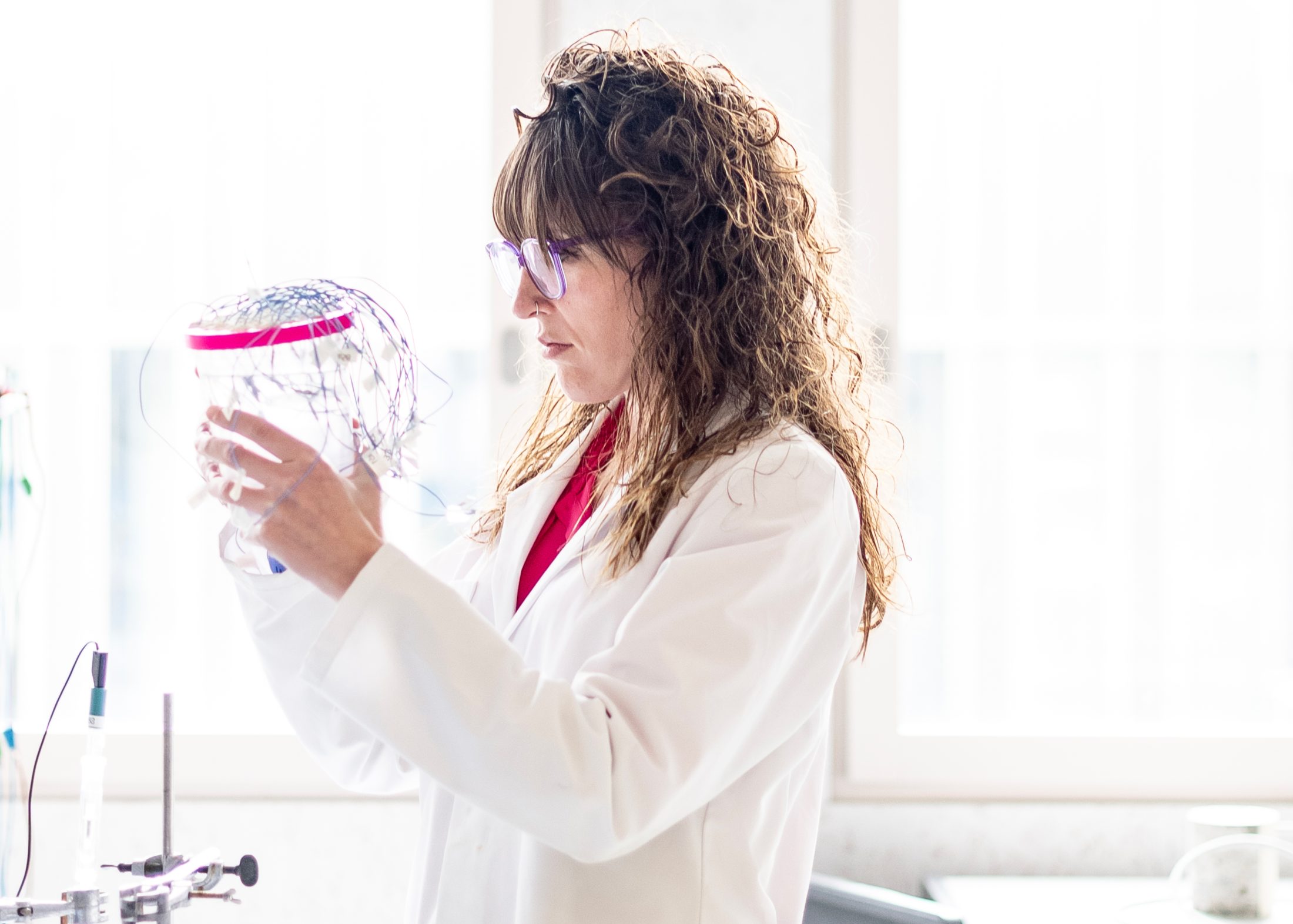Stable prospects
With her D-BAUG spin-off DuraMon, Yurena Seguí Femenias aims to ensure that large public infrastructures built from reinforced concrete are safer and more sustainable – in Switzerland and beyond.

When asked whether she has another day job besides her start-up DuraMon, Yurena Seguí Femenias’s eyes light up: “Since 2021 I’ve been fully employed by DuraMon. And we’ve just successfully completed our first round of seed funding.” The young entrepreneur from Menorca, who has lived in Zurich for 13 years, is proud of the services her spin-off provides: “Steel corrosion in reinforced concrete is a huge challenge, especially in large public infrastructures like bridges and parking garages. We provide tailored solutions to detect potential damages at an early stage and reduce costs.”
More security with sensor technology
Long overlooked, the potential consequences of corrosion were finally brought to public attention in 2018 with the collapse of the motorway bridge in Genoa – in which it’s assumed that undetected corrosion damage played a role. The topic has far-reaching relevance, as reinforced concrete is the most widely used building material in the world. Corrosion damage is by far the main degradation mechanism in reinforced concrete and often becomes critical after an average of 50 years – a lifespan that many building structures in Europe and the USA have already exceeded. It’s not only dangerous, but generates high costs when infrastructures need to be repaired or even demolished and rebuilt.
Damage to the steel is caused by the penetration of chloride ions, as is found in seawater or de-icing salt, and by CO2 from the atmosphere. It’s a slow process and difficult to assess, as it takes place within the concrete and signs of damage often become apparent when it’s already advanced. “Our sensors monitor all the significant parameters simultaneously, like pH and chloride values, inside the structure. We use these to make an assessment of its present condition, deliver forecasts and identify areas in need of repair,” Yurena Seguí Femenias explains. “This is how we ensure that fewer costly, time-consuming, and energyintensive repair activities are required.” The sensors can be used in new or existing buildings, and a key part of DuraMon’s service is to analyse and interpret the data the sensors provide. The spin-off came out of Ueli Angst’s Durability of Engineering Materials research group and is co-founded by the professor, who ensures the constant integration of the latest scientific findings.
Lucky coincidences and plenty of stamina

In 2010, when Yurena Seguí Femenias came to ETH Zurich for an exchange year during her studies at the Universitat Politècnica de Catalunya in Barcelona, the dream of founding her own start-up lay far in the future. During her Master’s thesis, which she did at Sika Technology AG, she was supervised by ETH Professor Robert Flatt. Once she’d completed her Master’s degree, he offered her a job as research assistant in his Physical Chemistry of Building Materials group at the Department of Civil, Environmental and Geomatic Engineering (D-BAUG). It was there that she met Ueli Angst, then a postdoc, as well as the now professor emeritus Professor Bernhard Elsener, under whose supervision she did her doctorate. After receiving funding from the Innosuisse BRIDGE programme and further advancing the sensor technology she’d developed during her doctoral studies, an ETH Pioneer Fellowship finally gave her the chance to launch her own start-up. “Thanks to the Pioneer Fellowship, I was able to draw on a large network and an enormous amount of expertise, which gave me the critical momentum I needed to go ahead with the start-up,” Yurena Seguí Femenias explains.
“I’m a very curious person and want to find out how things work. And how they could work even better,” is how she describes her motivation. “On top of this, I have a lot of stamina.” This quality also helped her get through the strenuous financing period of her start-up, as fundraising for DuraMon was one of the greatest challenges she’d faced along the journey so far. “It’s a huge amount of work. You need a thick skin and a lot of self-confidence,” the young entrepreneur reveals. “The fact that you never know if the effort will pay off in the end also wears you down.”
As it now stands, the effort has paid off. Yurena Segui Femenias is currently busy with projects in Zurich, Basel, Aargau and Saas Fee, as well as her first project in Germany. And the budding entrepreneur is going full steam ahead with her next major goals: to see DuraMon established in Europe and beyond.
This article is a slightly edited version of an article that was first published in the external page Uplift Magazine of the ETH Foundation. Text: Andrea Zeller. Photos: © ETH Foundation / Daniel Winkler.

Link
To the press release Download DuraMon successfully closes CHF 1 M seed financial round (PDF, 309 KB)